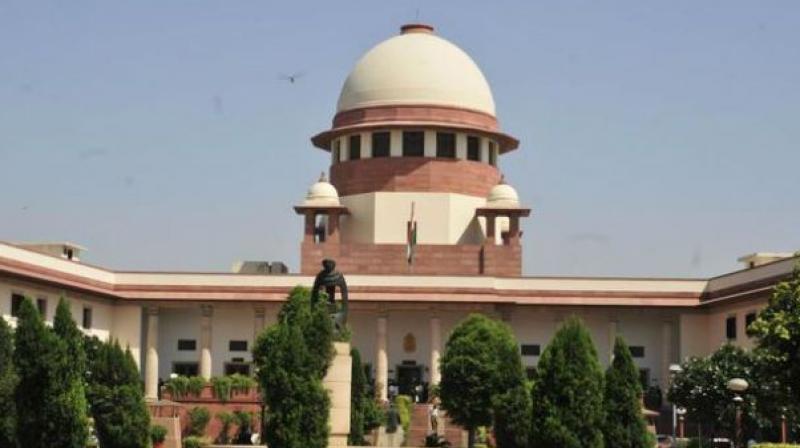Won't debate what is Hindutva' now, says Supreme Court
Senior counsel said the court should not sanitise the poll process from all religious, caste issues as a healthy debate is necessary.

New Delhi: The Supreme Court on Tuesday clarified that it is not going into the larger debate as to what is Hindutva now and it will confine the scope to whether religion can be used to garner votes.
Chief Justice T.S. Thakur, heading a seven-judge bench, gave this clarification when counsel for social activist Teesta Setalvad sought impleadment in the proceedings and wanted the court to consider a ban on seeking votes in the name of religion.
The bench which also included Justices M.B. Lokur, S.A. Bobde, A. K. Goel, Uday Lalit, D.Y. Chandrachud and L. Nageswar Rao said, “We will not reconsider the 1995 judgement and also not examine Hindutva or religion. We will confine ourselves to the issue raised before us in the reference, and there is no mention of the word ‘Hindutva’. If anybody shows that there is a reference to Hindutva, we will hear him.”
Plea to voters must be on secular lines, says SC
The bench is hearing the ‘1995 Hindutva’ case, in which it was held that Hinduism is a way of life and there is no bar on expressing words like Hindutva or Hinduism or to have a Hindu state will not amount to seeking votes in the name of religion which is prohibited under Section 123 (3) of the Representation of the People Act.
Senior counsel Shaym Divan, appearing for former MP chief minister and BJP leader Sunderlal Patwa, submitted that an appeal by a candidate to voters other than those who share his religion is not proscribed under law and the expression should be given a limited and restricted meaning.
He said the court should not sanitise the poll process from all religious, caste issues as a healthy debate is necessary. He argued that the earlier line of judgements had stood the test of time, restricting the appeal for a candidate’s religion, for 55 years.
The CJI pointed out that seeking votes in the name of religion by a candidate or on his behalf may be a greater evil than seeking votes in the name of caste or language as religious appeal is bound to influence the voters.
The CJI said, in a secular country any appeal to the voters should be in tune with secular philosophy and political agitation advancing the cause of religion with an intent to garner votes is not permissible.
Giving a narrow meaning will result in a chaotic situation and will directly affect the secular fabric of this country, he said. Arguments will continue on Wednesday.

